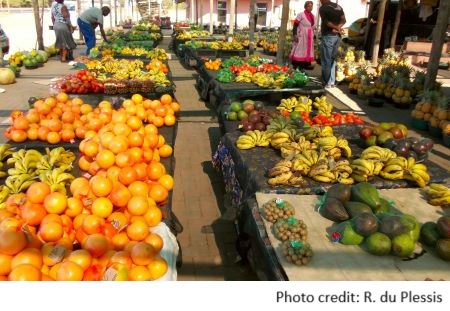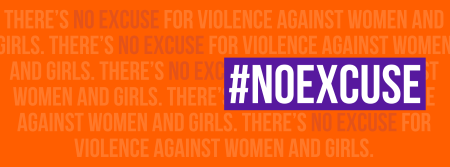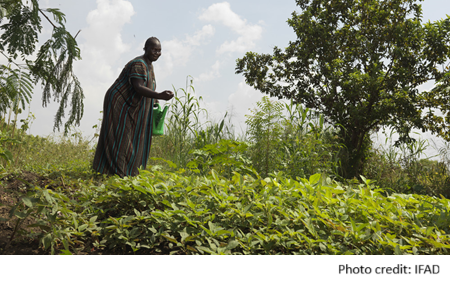GRAN has been supporting the Global Fund for many years by encouraging our government to do its fair share in pledging to the Fund. We are so pleased that Canada is hosting the Global Fund’s 5th Replenishment Conference in Montreal on September 16 and17 and that this government has increased its pledge by 20% over what was pledged three years ago.
Read a blog post by the Minister of International Development, the Honorable Marie-Claude Bibeau.
http://www.huffingtonpost.ca/interagency-coalition-on-aids-and-development-icad/canadasfight-to-end-hiv_b_11742486.html
This week over 5 million Canadian children and youth will head back to school looking forward to another year of learning. However, GRAN's thoughts are with the 62 million girls who are not only being denied this right but also a chance to make their dreams a reality.
Please consider signing Global Citizen's petition, one of our partners in education, to encourage world leaders to commit to getting all girls in school to ensure they have a future with choices, hopes and possibilities.
Signing this petition will let PM Trudeau know that girls' rights are important to us and that education will help achieve both gender equality and the rights of girls and women.
Click here
https://www.globalcitizen.org/en/action/let-girls-learn
GRAN representative Irene Clarke attended the Civil Society Organization Hearing that led to the UN High Level Meeting on HIV/AIDS in early June. The result of the meetings was the UN Political Declaration on HIV and AIDS. Read a discussion of the recommendations that appeared in The Lancet. The author proposes three critical areas of action, one of which is access to medicines.
Click here
http://www.thelancet.com/journals/lancet/article/PIIS0140-6736%2816%2931336-8/fulltext?elsca1=etoc#.V7i-qGCidtQ.email
The Education Commission is a major global initiative engaging world leaders, policy makers and researchers to develop a compelling investment case and to provide a roadmap to overcome the barriers to lifelong education and learning for all.
Launched in September of last year, the Education Commission’s findings will be presented to the UN Secretary-General Ban Ki-moon at the 2016 General Assembly in New York on September 18th who has agreed to act on the recommendations in the report.
The Commission has three clear objectives:
- Bring together the best evidence from around the globe about what works to expand and improve learning opportunities.
- Agree on an investment case and agenda for action.
- Inspire and persuade leaders – at all levels and sectors – to action
Learn more about the important work of the Education Commission at http://educationcommission.org/
See also
http://www.aworldatschool.org/news/entry/Global-education-can-happen-says-Erna-Solberg-of-Education-Commission-2726
GRAN participated in the recent consultations held by the Government of Canada to formulate a new framework for international assistance. Read GRAN’s submission which outlines a vision urging a renewed focus on sub-Saharan Africa, including older women in a feminist lens, and upholding the rights of women and girls to health, education and lives free from gender violence. Our themes also include the importance of peace, security and the role women play in achieving sustainable development. To download the Government’s discussion paper click here.
Around the world, children in areas of crisis and conflict are often denied access to education. The world’s newest country, South Sudan, currently has the world’s highest proportion of out-of-school children, 51%. This percentage is even higher for girls: a troubling 70% of girls in South Sudan do not attend school. The Education Cannot Wait Fund is dedicated to changing this. The Fund works to ensure that children in crisis and conflict areas have access to school and learning. To learn more, view the video ‘School is a Magical Place’ .
For children in conflict areas, education is critical in helping them cope and recover from trauma. Did you know that globally only 2% of humanitarian funding goes towards education? When you are connecting with your MP in August or September there are great resources on our website to help you make the case that Canada’s humanitarian education funding needs to be increased.
"Today, one in ten Canadians are unable to afford medications as a result of costs — a problem that affects nearly a quarter of Canadian households."
The proposed Trans Pacific Partnership trade agreement threatens to bring even higher drug costs. Prescription drugs will be priced out of reach for many, whether at home or abroad.
Read more:
https://www.thestar.com/opinion/commentary/2016/07/06/tpp-heightens-urgency-for-national-drug-coverage-in-canada.html
A Good Reason to Invest in Education
Peacebuilding is a fundamental Canadian value and what we all strive and hope for in our world. That is why we should be paying some attention to ‘Learning for Peace’, UNICEF’s largest global peacebuilding program. Initiated in 2012 in partnership with the government of the Netherlands, ‘Learning for Peace’ is an innovative, cross-sectoral initiative to address root causes of conflict and strengthen resilience, social cohesion and human security in 14 conflict-affected countries. Taking place in schools, Learning for Peace is a unique initiative to bridge education and peacebuilding. At a special event on June 30, 2016, UNICEF celebrated the achievements of this programme and launched its final piece of research, examining the impact of conflict on education inequality and gender parity. UNICEF’s work to enhance access to safe, quality education, protection and development opportunities for youth offers crucial contributions to peace.
To learn more about the crucial role of education in peacebuilding, read more on the Global Partnership for Education blog:
http://www.globalpartnership.org/blog/building-peace-through-education
If you too feel strongly that Canada should invest in education in development for a more peaceful world, let your MP know and send him/her a letter. A sample letter can be found here: http://grandmothersadvocacy.org/system/files/resources/MP%20Letter%20Edu...
Sustainable Development Goal #4 focuses on inclusive and equitable quality education for all children, everywhere. In recent years, education systems around the world have worked hard to get children in school. This effort has been very successful: in the 1950’s, 5 out of 10 children of primary school age were in primary school. Currently, the number is 9 out of 10. But is access to school translating into learning? Too often, it seems, the answer is no. Almost 38% of children lack basic reading and math skills. This means that around the world 250 million children lack basic skills, including 130 million who have spent 4 years or more in school. So how do we ensure that children who are in school are actually receiving a quality education?
Click on the link to watch a brief video and take a look at the detailed Millions Learning document.
http://www.brookings.edu/blogs/education-plus-development/posts/2016/04/19-scaling-learning-for-children-youth-robinson-varma
Please remember GRAN’s EdWG MP Letter on education funding and the supporting Visit Your MP Script under the Campaign Button and click on Education Resources http://grandmothersadvocacy.org/issue/education
Smiling teenagers from Banjul, Gambia.
Photo: Nacho Fradejas Garcia
Gambia’s campaign includes a series of awareness-raising activities on the effects of child marriage. The activities are geared towards mobilising grassroots support for legislation to address child marriage. Earlier this month, traditional leaders
expressed their support for the campaign and committed to addressing child marriage in their districts, stressing the importance of education for girls.
Pages


